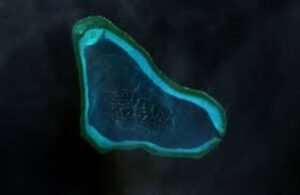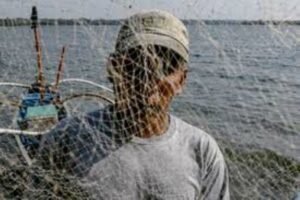The disputed Scarborough Shoal, also known as Bajo de Masinloc in the Philippines, is the subject of reports of the usage of cyanide, with Filipino fishermen accusing Chinese fishermen of using it. The Philippine government has declared plans to look into these claims. A representative for the Bureau of Fisheries and Aquatic Resources (BFAR), Nazario Briguera, claims that Chinese fishermen are using cyanide to catch fish. They are purposely causing damage to the area in order to prevent Filipino fishing boats from entering it.
Allegations of Cyanide Fishing
According to Jonathan Malaya, a spokesman for the National Security Council (NSC), the National Task Force for the West Philippine Sea has directed BFAR to compile the reported cases for further examination. Amid recent tensions with China over disputed zones in the South China Sea, Malaya stressed the need for restraint.

Government Response and Investigation
After verification, the Taskforce will forward the case to the Department of Justice and the Office of the Solicitor General to identify any misconduct and those accountable. Controversial cyanide fishing stuns fish without killing them, making capture easier. It is still hardly enforced in many nations even if it is prohibited.
The assertions coincide with continuing hostilities over South China Sea territorial claims between China and the Philippines. After a standoff, Scarborough Shoal, which is well within the Philippines’ exclusive economic zone, was taken over by China in 2012. Since then, there has been conflict over Filipino fishermen’s access to the shoal.

Filipino fisherman were unable to access the shoal in September due to a barrier placed there by Chinese warships; nonetheless, the Philippine Coast Guard later dismantled a barrier that Chinese warships had placed at the entrance of the shoal in September to prevent Filipino fisherman from accessing it. The conflict is made worse by the latest claims of cyanide fishing.
Chinese Response and Denial
The claims have been denied by the Chinese embassy in the Philippines, which has called them fake and without foundation. They stressed China’s dedication to preserving the environment and putting a stop to illicit fishing. Nonetheless, there is still great worry about how fishing, land reclamation, and military operations would affect the South China Sea’s delicate marine ecosystems.

In conclusion, the Philippine government intends to look into claims that Chinese fishermen at Scarborough Shoal, a contested area in the South China Sea, were fishing with cyanide. The two countries’ already-existing territorial disputes are exacerbated by this problem. The Chinese embassy refutes the claims and draws attention to the region’s larger environmental degradation and marine ecosystem preservation issues.










